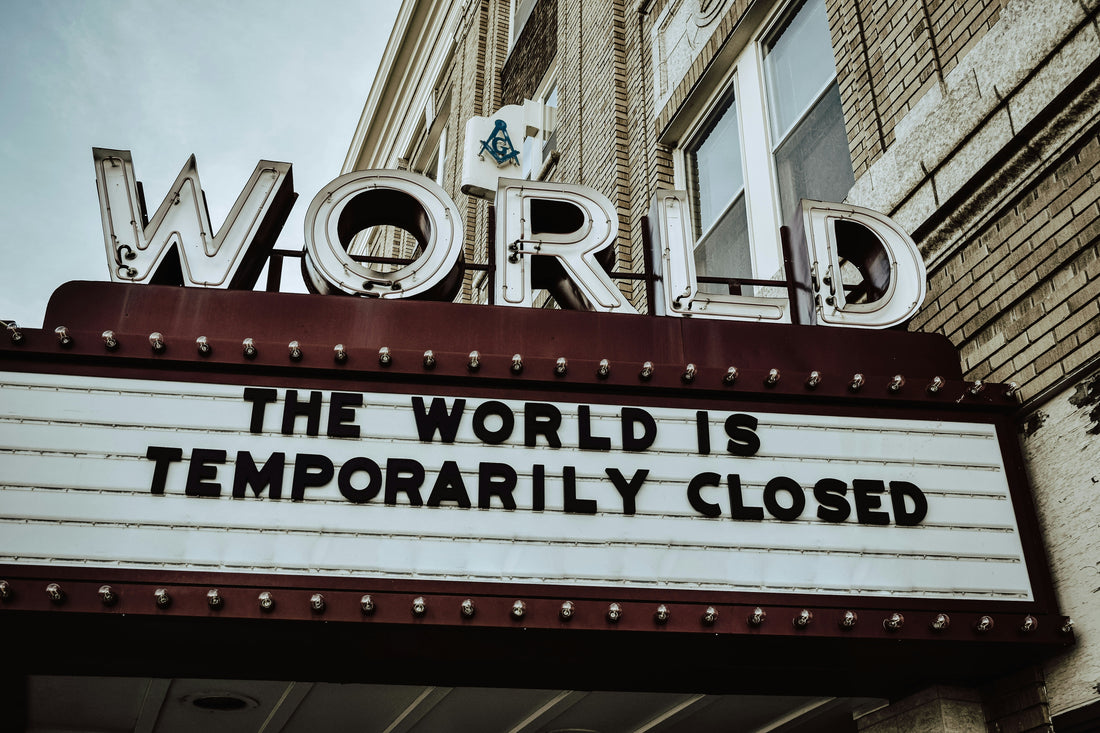
Is the world fucked?
Share
In an era marked by rapid technological advancements, geopolitical tensions, and unprecedented global challenges, a prevailing sentiment of doom and uncertainty permeates the collective consciousness. I want to delve into pressing issues such as widespread conflict, rampant greed, and the looming question of artificial intelligence's role in our future. Are we, indeed, living in the end of times? Are we all fucked?
War is Everywhere
The spectre of war looms large over our world, with conflicts raging across various continents. From the Middle East's enduring strife, and the Israeli-Palestinian conflict, to the ongoing tensions in Eastern Europe, exemplified by the conflict in Ukraine, war seems to be a constant presence. The consequences are devastating, with millions of lives lost, economies shattered, and social fabrics torn apart.
While conflict has been a persistent feature of human history, the scale and impact of modern warfare have reached unprecedented levels. The invention of nuclear weapons during World War II introduced the terrifying possibility of global annihilation. Although the Cold War ended without a nuclear catastrophe, the current shifting geopolitical landscape and regional disputes threaten to reignite such fears.
The human cost is most poignantly observed in the burgeoning refugee crisis. Facing immense challenges, including loss of home and identity, limited access to basic necessities, and the constant threat of violence and exploitation. The plight of these individuals underscores the urgent need for peaceful resolutions to conflicts and robust international cooperation.

Photo by Egor Myznik on Unsplash
Greed is Ruling the World
In today's globalised economy, the pervasive influence of greed has become a defining characteristic. The relentless pursuit of profit, often at the expense of ethical considerations and social responsibility, has led to stark inequalities and environmental degradation.
The chasm between the wealthy and the impoverished continues to widen, with a small fraction of the global population controlling a disproportionate share of resources. The world's richest 1% own more than twice as much wealth as 6.9 billion people combined. This concentration of wealth in the hands of a few exacerbates social tensions and undermines the principles of fairness and equal opportunity. Especially as we now are starting to see the wealthy become more involved in politics and pushing their agendas around the world.
Corporate greed also plays a significant role in environmental destruction. The exploitation of natural resources for profit, often with little regard for sustainability, has led to deforestation, pollution, and climate change. These environmental challenges pose existential threats to ecosystems and human societies alike. The drive for economic growth must be balanced with a commitment to environmental stewardship to ensure a viable future for all.
Multinational corporations and billionaire individuals wield immense power and influence, shaping policies and economies across the globe. While these people have the potential to drive positive change through innovation and job creation, their actions are often driven by the bottom line, personal greed, and large ego’s.

Photo by Carl Malmer on Unsplash
Will AI Help Us or Destroy Us?
Artificial intelligence (AI) represents one of the most transformative and contentious technological developments of our time. As AI systems become increasingly sophisticated, they hold the potential to revolutionize various aspects of human life. However, this potential is accompanied by significant risks and ethical dilemmas.
AI's capabilities offer numerous benefits across diverse fields. In healthcare, AI can analyse vast datasets to identify disease patterns, enhance diagnostic accuracy, and personalize treatment plans. In the realm of transportation, self-driving vehicles promise to reduce accidents, improve efficiency, and alleviate traffic congestion. Additionally, AI-driven automation can streamline industrial processes, boost productivity, and drive economic growth.
Despite these advantages, AI's rapid advancement raises profound ethical questions. One of the primary concerns is the displacement of jobs, as automation threatens to render various occupations obsolete. Driven by greed and the need to reduce costs, this shift could lead to widespread unemployment and exacerbate economic inequalities. Moreover, AI systems can perpetuate and amplify biases present in their training data, leading to discriminatory outcomes in areas such as hiring, law enforcement, and lending.
Perhaps the most alarming aspect of AI is its potential use in military applications. Autonomous weapons, capable of making life-and-death decisions without human intervention, pose a significant threat to global security. The prospect of AI-driven warfare raises concerns about accountability, ethical considerations, and the potential for unintended escalation.
To harness AI's potential while mitigating its risks, robust governance frameworks and ethical guidelines are essential. Collaboration must exist to establish standards that prioritise human well-being, transparency, and accountability. Ensuring that AI development aligns with societal values and serves the greater good is paramount in shaping a future where technology enhances. However, this needs to be done on a global scale, it’s no good one nation having governance and control when others do not. With the current state of geopolitics and the lack of trust between nations, this makes this kind of agreement, and the signing up to global policy unlikely in the near future.

Photo by Samuel Regan-Asante on Unsplash
Conclusion
As we navigate the complexities of contemporary life, the question of whether we are living in the end of times looms large. The prevalence of war, the dominance of greed, and the uncertain future of AI all contribute to a sense of existential unease. Although, it is essential to recognize that humanity has faced and overcome immense challenges throughout history, the world has never felt smaller.
We need to confront these issues and strive for a future where hope and resilience prevail. Ultimately, the fate of our world rests in our collective hands. we have the power to shape a future that defies the notion of an impending apocalypse. The few may hold have control at the moment, but the many have the real power and we should embrace this responsibility with determination and optimism, forging a path toward a brighter and more just world.
Cover photo by Edwin Hooper on Unsplash




